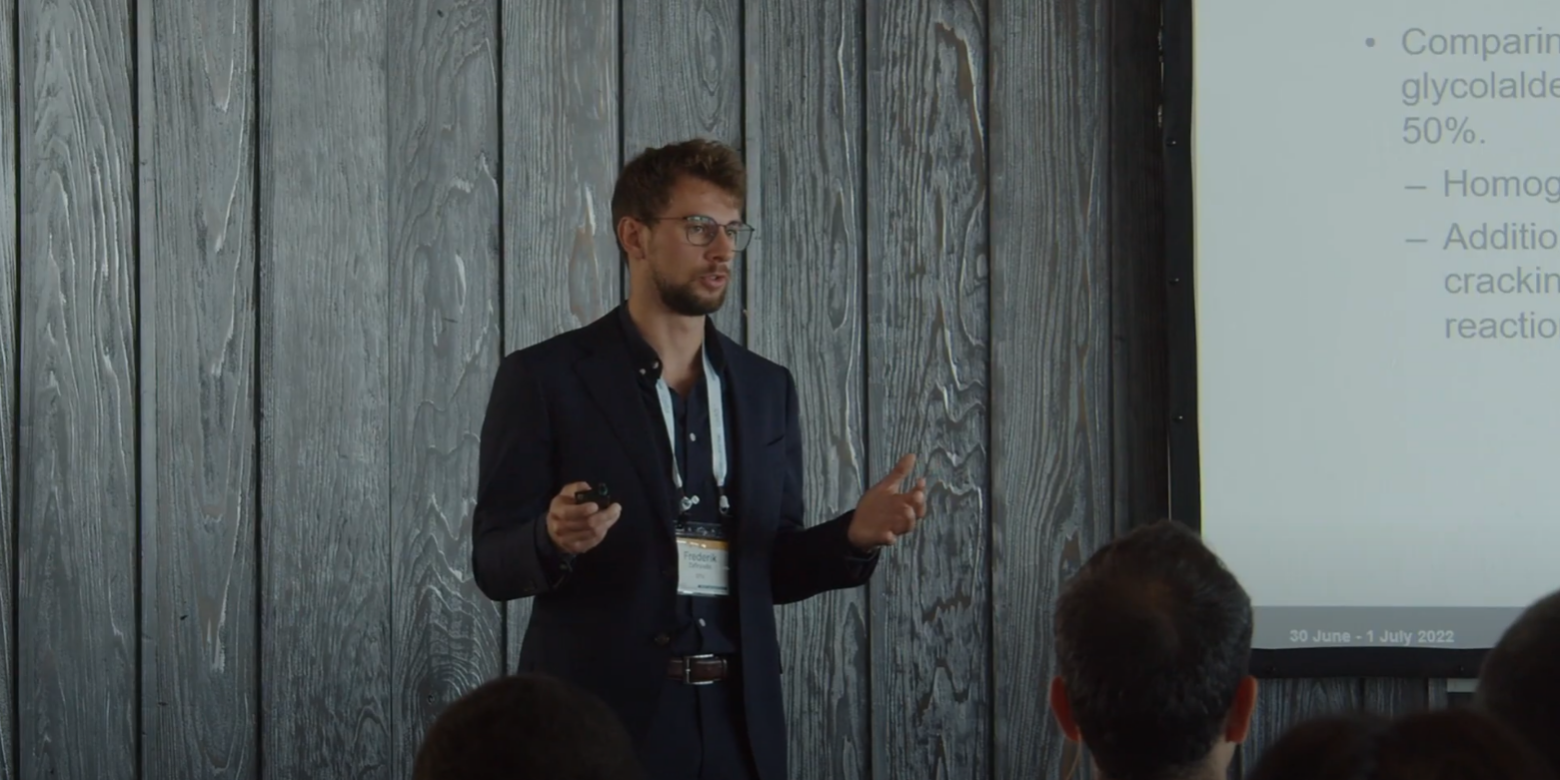Also available on Youtube.
About This Presentation
Presented by
Frederik Zafiryadis, of Haldor Topsøe and Technical University of Denmark, at the 2022 Barracuda Virtual Reactor Users’ Conference.
Summary
The success of the circulating fluidized bed (CFB) and reactor riser within the fluid catalytic cracking process has spurred additional use of these designs in emerging research fields such as processes for cracking of sugars. Here, an aqueous solution of sugars is sprayed into the reactor undergoing a fast pyrolysis type process in order to yield glycolaldehyde and other oxygenate products such as pyruvaldehyde, acetol, and formaldehyde. The technology has the potential to enable economically and environmentally sustainable production of bio-based chemicals. The current study presents a computational particle fluid dynamics (CPFD) model for simulating the sugar cracking reaction in a pilot-scale riser. The model comprises of a previously validated hydrodynamic model coupled with a liquid injection, dispersion, and evaporation model and a homogeneous reaction kinetics model for handling the sugar cracking process. From optical measurements of droplet size distribution in ambient, quiescent conditions, a modified Rosin-Rammler droplet size distribution is proposed to accurately represent the gas-liquid jet in the simulations and obtain a sufficient level of agreement with pilot-plant data of pressure and temperature. The ability of the gas-phase sugar cracking model within the framework of the CPFD model to predict the yields of glycolaldehyde and other oxygenates is evaluated by comparing simulated and experimental yields of the pilot-scale riser. Coupling the detailed hydrodynamics of the gas-liquid jet-dominated feed injection zone with the riser hydrodynamics and the homogeneous kinetics model is found to yield sound predictions for the overall hydrodynamic and thermal behavior of the system. Accurate yield predictions of oxygenates will require further work and improvements to the kinetic model.
About the Speaker
Frederik Zafiryadis holds a master’s degree in mechanical engineering from the Technical University of Denmark (DTU), specializing in industrial fluid mechanics and computational fluid dynamics simulations of dilute particle-laden flow systems. Since March 2019 he has been enrolled as a PhD student at the Chemical Engineering Department at DTU in collaboration with Haldor Topsøe, investigating and modeling the hydrodynamics of circulating fluidized beds, specifically looking at modeling of circulating fluidized beds for cracking of sugar into glycolaldehyde-rich oxygenates.

